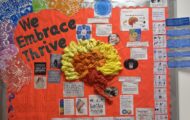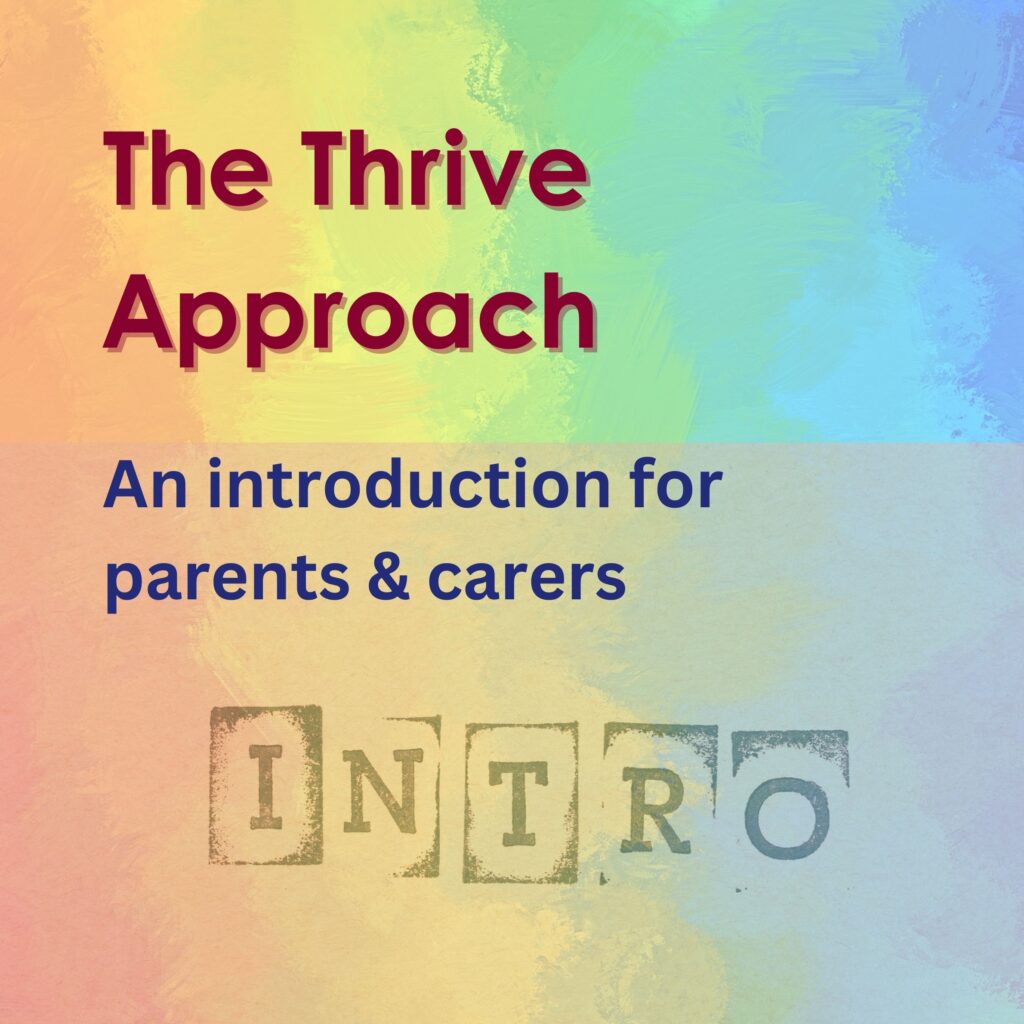The Thrive Approach
"Fostering the understanding, skills and positive relationships needed to develop and sustain healthy social and emotional wellbeing"


At England Lane we use The Thrive Approach to help support our children to become more emotionally resilient to help support with their social and emotional development. Thrive creates an environment where our children feel safe and supported preparing them to engage with life and learning.



We use The Thrive Approach as a whole school strategy to promote positive mental health and wellbeing of which when this is present in children’s lives it has been proven to improve their attendance, behaviour and attainment. This allows our children to become confident, curious, creative and capable child and therefore opens doors to a bright future for our children.
Each class has a designated Thrive display that promotes the use of PACE, VRF’s and each class’ thrive target for the term.
What is PACE? (playful, acceptance, curious, empathy)
Which is a way of thinking, feeling, communicating and behaving that aims to make the child feel safe. It is based upon how parents connect with their very young infants. As with young toddlers, with safety the child can begin to explore.
What are VRF’s? (validate, attune, contain, regulate – soothe calm and stimulate the child back to social engagement)
Vital Relational Functions are the tools used in Thrive to address a child’s emotional state during a crisis.
Attune: This is where you are alert to how they are feeling. You demonstrate that you understand the intensity, pitch, pace, volume, expansiveness or special experience of the child’s emotional state.
Validate: This is where you are alert to the child’s experience. This needs to happen before you move to help them regulate it. This is the beginning of being able to think about feelings.
Containment: This is where you demonstrate that you understand the pitch, intensity, quality of their feeling or mood and that you can bear it. This is where you show that you can take their deep distress, raging anger or painful sorrow and make it a survivable experience. Catch it, match it and digest it by thinking about it and offering it back, named, in small digestible pieces. This builds trust for the child: in you, in adults and in the world.
Soothe, calm, and stimulate: This is where you must be alert to how they are feeling and demonstrate emotional regulation by soothing and calming their distress. Catch it, match it and help the child to regulate the feeling up or down. They need to experience being calmed before they can do it for themselves.
Our academy has a dedicated Thrive room that provides children who require Thrive interventions a safe space to communicate their emotions and feelings, through many different mediums such as, verbal interaction, creative arts, drama, sand/water play, strategic games, story telling and many more.
We are also lucky to have a sensory room devoted to providing children a calm and tranquil environment that lets them explore there senses through touch, sound, visuals and the option to include taste and smell sensory activities based on the individual child’s needs.

Lego Therapy
"LEGO Therapy is a structured play approach to develop social skills for children."

As an academy, as well as Thrive interventions we also offer our children Lego Therapy, who need additional therapeutic support.
LEGO-Based Therapy is a social development program that uses LEGO activities to support the development of a wide range of social skills within a group setting.
Playing with LEGO in a therapy setting promotes social interaction, turn-taking skills, sharing, collaborative problem-solving and the learning of concepts. It can be used to target goals around social skills, language and motor skills. By using a commonly adored tool like LEGO it capitalises on its existing motivation and supports self-esteem by allowing the participants to demonstrate their skills in a social situation. It also sets up a positive opportunity for guided social problem-solving to help develop social skills that can then be used in other situations.

Mental Health & Wellbeing

At England’s Lane Academy, we’re committed to promoting positive mental health and wellbeing.
– Mrs Simons is our Designated Senior Mental Health Lead (DSMHL)
– Mrs Simons is our Thrive Trained Practitioner
– Mrs Cutler is our SENDCO
Within the academy, there are 2 Mental Health First Aiders: Mrs Simons and Mrs Carratt.
We believe a whole school approach to the topic is paramount and ensure all stakeholders are educated about mental health and wellbeing, in addition to being offered support at both a whole school and individual level.








